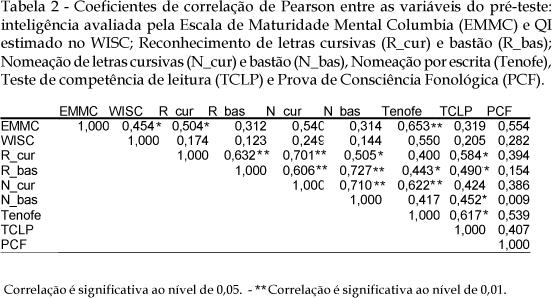the aim of the study was to verify the effectiveness of computer based intervention with the Phonological Awareness Literacy Software for students with intellectual disabilities. The software enables participation in activities that stimulate the development of phonological awareness and grapheme to phoneme conversion. Twenty-two children and teenagers between the ages of 10 and 17 years participated in the study. Initial evaluation of cognitive development level was performed using the Columbia Mental Maturity Scale and the Wechsler Intelligence Scale for Children. All the participants were randomly divided into two groups: experimental and control. The groups were matched for sex, age, and cognitive development level. The Reading and Writing Tests Battery and The Verbal Phonological Awareness Test were used for assessment at the beginning and end of the intervention program. Sixteen individual sessions were run with the experimental group participants using the Computerized Phonological Reading software. The results indicated improvements in writing, reading and phonological awareness skills only for the experimental group. Comparison with normative data showed that before the intervention the experimental group's performance was on the level of pre-school children, but after the intervention, they tested at the 2nd grade level.
Intellectual disability; Reading; Phonological Awareness; Technology




